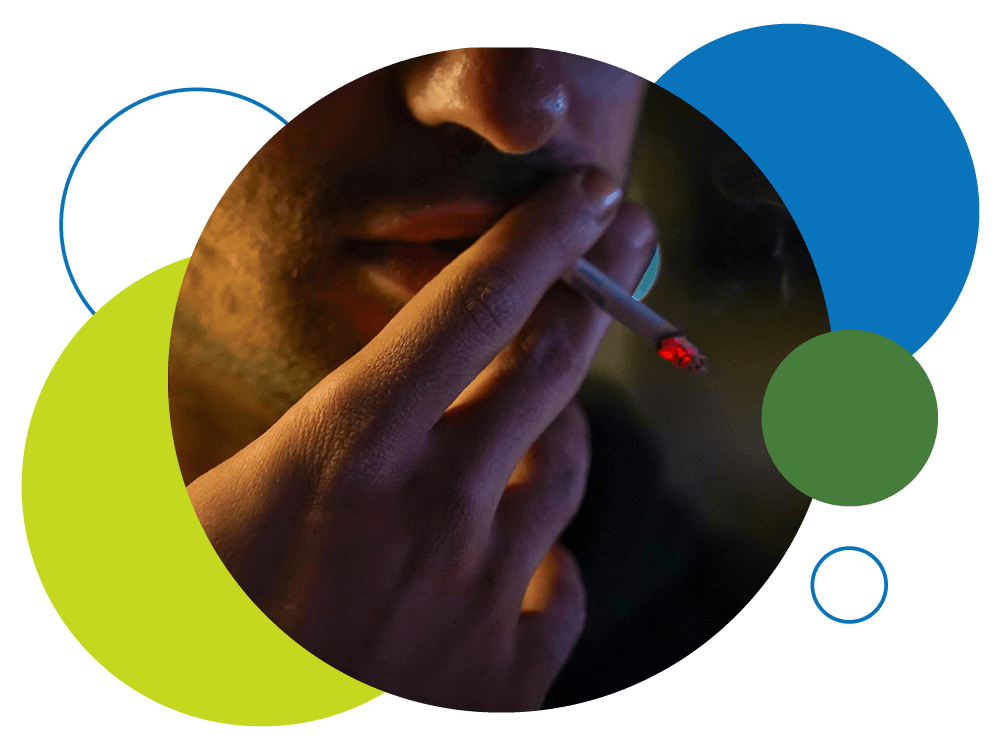Substance Abuse Treatment, San Diego

Understanding Substance Use
Using substances such as alcohol, nicotine, vapes, marijuana, and stimulants can be dangerous, especially when use begins at a young age, occurs frequently, or involves binge episodes. Early recognition of problematic patterns is essential.
In today’s environment, teenagers are experimenting with drugs and alcohol earlier and more frequently. For college students, substance use is often normalized, creating a culture where casual experimentation can quickly evolve into dependency or abuse.
While experimentation may be tolerated in some households as a way to eliminate curiosity, the issue arises when it becomes more frequent and eventually leads to full-blown addiction. It’s truly a slippery slope.
Unfortunately, schools, colleges, and social settings are often saturated with easily accessible substances, making it all too simple for individuals to misuse them. To make matters worse, these unregulated substances are often laced with other harmful drugs for profit-driven motives.
Recognizing the Signs
Our team can help families identify signs of substance abuse and intervene early. Common indicators include:
- Increased withdrawal and isolation
- Frequent absences from school or work
- Faltering grades or performance
- Secretive or oppositional behavior
- Running out of money quickly
- Mood swings, irritability, defensiveness, and jitters
- Increased lethargy or bursts of energy
- Weight fluctuations and disrupted sleep patterns
- Presence of paraphernalia such as bongs, glass pipes, rolling papers, rolled-up currency notes, lighters, syringes, etc.
- Running out of prescription medication like benzodiazepines (Xanax, Valium, Halcion, Ativan, Klonopin, etc.), stimulants (Adderall XR, Vyvanse, Concerta, etc.), and opioid-based painkillers much sooner than prescribed

Substance Abuse Treatment in San Diego
Long-Term Complications of Substance Abuse
Substance abuse leaves a profound and lasting impact on various aspects of life, from physical health to emotional well-being. Understanding the potential long-term complications highlights the importance of seeking timely intervention to prevent irreversible harm and reclaim a balanced life.
Disruption of the Brain's Reward System
Repeated substance use rewires the brain's reward circuitry, diminishing its natural ability to generate feelings of satisfaction or joy, making daily experiences feel less fulfilling without the substance.
Cognitive Decline
Sustained exposure to addictive substances erodes key cognitive abilities, such as focus, memory, and problem-solving, potentially hindering personal and professional growth over the long term.
Emotional Instability
Substance dependency disrupts emotional regulation, often triggering chronic mood disorders like depression, anxiety, or irritability, which can persist even after cessation of use.
Physical Health Complications
Extended use of substances can result in severe health issues, including liver damage, cardiovascular problems, and weakened immune function.
Social and Interpersonal Challenges
Dependency on substances fractures personal relationships, leading to isolation, mistrust, and difficulty fostering meaningful connections, often leaving individuals feeling unsupported and alone.
Impaired Stress Response
Addiction compromises the body’s natural ability to regulate stress, leaving individuals overly reactive to challenges and struggling with prolonged recovery from everyday pressures.

Understanding Addiction
Addiction often stems from deeper struggles, such as a misalignment between one’s actions and core values or a lack of direction in life.
Without a sense of purpose, individuals may turn to substances as an escape, especially when pessimism or nihilism dominates their worldview.
Substance abuse therapy can play a transformative role by helping individuals reshape their perspectives and find meaning, paving the way for healthier choices.
It’s also important to understand that addiction is less about the substance itself and more about the relationship formed with it. Often, this relationship is driven by an attempt to self-medicate underlying mental health conditions like anxiety, depression, or unresolved trauma.
Our approach to substance abuse treatment addresses these co-occurring challenges, helping individuals build resilience and discover healthier coping mechanisms.
What You Can Do as a Parent
Parents can play a pivotal role in supporting children through substance abuse treatment by fostering open and non-judgmental communication.
Instead of reacting with anger or punishment, approach the situation with empathy and understanding. Avoid demonizing the substance or shaming your child for their choices, as this can alienate them further.
Create a safe space where your child feels comfortable discussing their struggles without fear of rejection or shame. By actively listening and showing unconditional love, you can encourage them to open up about the root causes of their substance use, such as stress, peer pressure, or emotional pain.
Additionally, adopting a harm-reduction approach can be more effective than demanding immediate abstinence. This method focuses on minimizing risks while guiding your child toward healthier behaviors.
For example, educate them about the dangers of specific substances and provide resources for safe use if necessary, while also encouraging professional support like counseling or substance abuse treatment programs.
Collaborative efforts, rather than confrontational tactics, are more likely to help your child feel supported as they navigate the path toward recovery.


Building Resilience and Preventing Relapse
Recovery is a lifelong journey that extends far beyond initial treatment. Our team works with individuals to build the resilience necessary to maintain sobriety and avoid relapse.
By strengthening family communication, establishing healthier daily routines, and equipping clients with practical coping strategies, we focus on creating a strong foundation for long-term recovery.
Our team offers individual therapy, family therapy, and substance abuse support groups based on age and gender. At our San Diego facility, we empower individuals to navigate the challenges of life with confidence and renewed purpose.